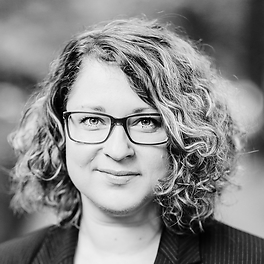Rostock Demographic Seminar Series
Family Climate During the COVID-19 Pandemic. Findings from Germany
Anne-Kristin Kuhnt and Sandra Krapf
Online Presentation, April 26, 2022
As part of the Rostock Demographic Seminar Series, Anne-Kristin Kuhnt from the University of Rostock gave a talk about family climate during the COVID-19 pandemic in Germany. Her co-author is Sandra Krapf from the Federal Institute for Population Research, Wiesbaden.
Abstract
The restrictions associated with the COVID-19 pandemic had various impacts on family life. Home offices, child care tasks, and more time to spend with family members were some of the consequences directly related to the family sphere. But how do these changes in family life affect the perceived quality of family life (family climate)? And do these changes depend on home office arrangements and the childcare situation?
This paper aims to improve our understanding of factors that help families cope with the pandemic by analyzing the COVID-19-release of the German Family Panel (pairfam). We analyse two dimensions of the family climate: (a) how stressful and (b) how relaxed family life was during the pandemic lockdown compared to the situation before.
Our descriptive findings show that 27% of the families in our sample (N = 849) reported that their family life was more relaxed during than before the pandemic. At the same time, 27% reported that their family life was less relaxed than before. With regard to stress within the family, 50% of the families experience more stress, 12% report lower stress levels. In the preliminary findings of our multinomial logistic regression models, we find that home office and ongoing external childcare contribute to an improved family climate. Respondents who did not have home office options and those who had to take on childcare tasks at home were less likely to report lower stress levels and more relaxed family lives. The findings highlight the role of work and care arrangements in coping with the COVID-19 pandemic.
About the Speaker

© Anne-Kristin Kuhnt
Anne-Kristin Kuhnt is an Assistant Professor for Demography at the Department of Sociology and Demography, University of Rostock, Germany. Before joining the University of Rostock, she worked as a Postdoc at the University of Duisburg-Essen, Germany. Her research is located at the intersection of Sociology and Demography. Current research and teaching focus on family, fertility, reproductive medicine, and the drivers of social integration of international migrants in Germany.
Sandra Krapf is a Senior Researcher at the Federal Institute of Population Research in Wiesbaden since 2021. Before that, she was a Research Fellow at the Mannheim Center for European Social Research and the University of Cologne. During and after her PhD, she worked at the MPIDR and earned her PhD from the University of Rostock. Her current research interests are in partnership behaviors, fertility and families' wellbeing.